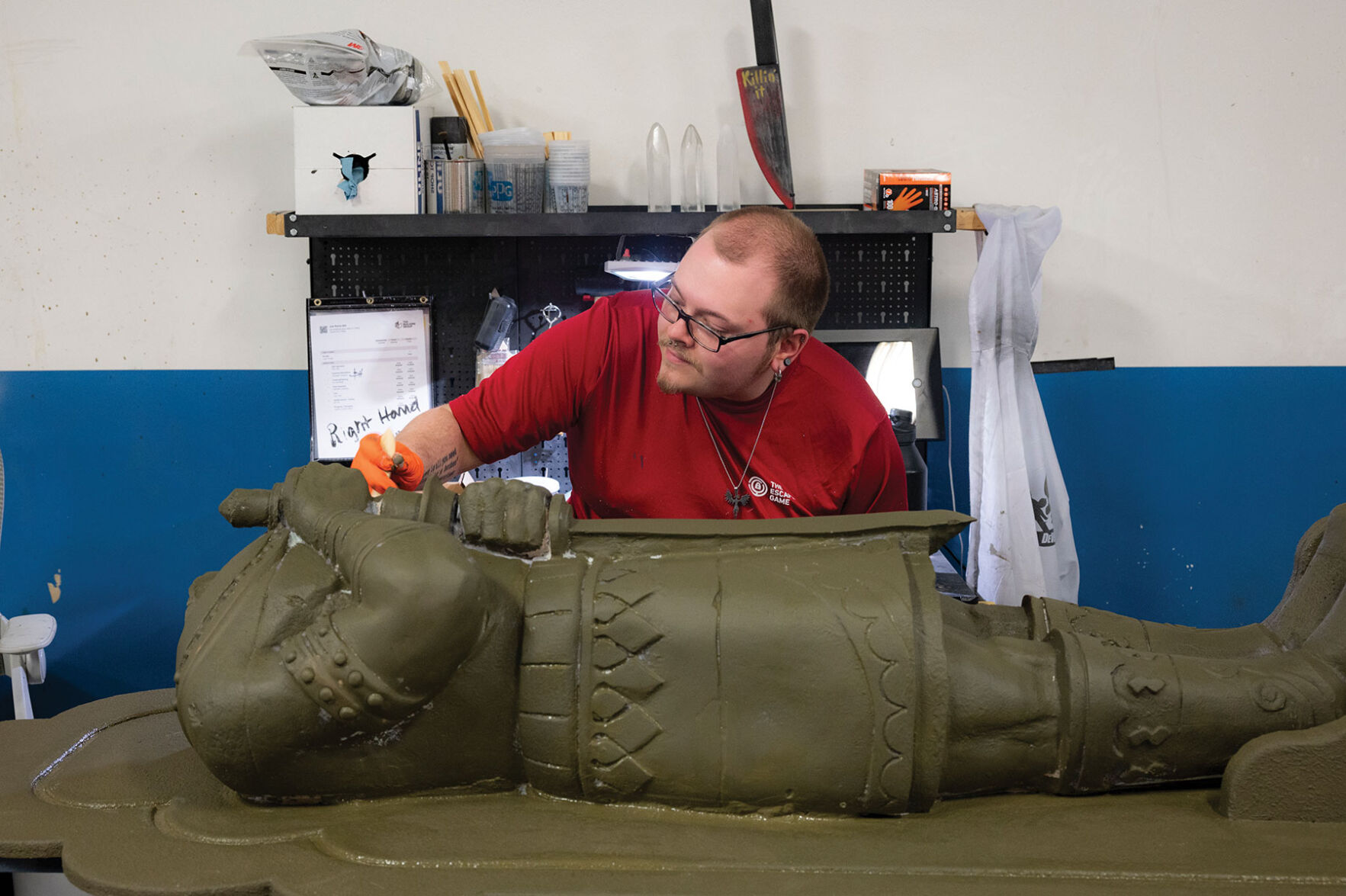Roughly 40 minutes outside downtown Nashville, a warehouse sits in the middle of an industrial area in Smyrna. From the outside, the massive, nondescript building — more than 62,000 square feet in total — fits right in with its surroundings. Inside, The Adventure Factory houses the production facilities for The Escape Game, a Nashville-based entertainment company focused on immersive gaming experiences like escape rooms.
The Adventure Factory contains a menagerie of bizarre items: ancient ruins, prison toilets, rubber weapons, an airplane fuselage, elevator doors to nowhere and, most importantly, dozens of levers, buttons, buzzers, wires and hatches. Out of context, it looks goofy, if intriguing. But the company creates almost all of its escape game aspects in house, so they never know what part may need to be fabricated next for its games — puzzle-based challenges that take on myriad themes, from space exploration to heists and prison breaks.
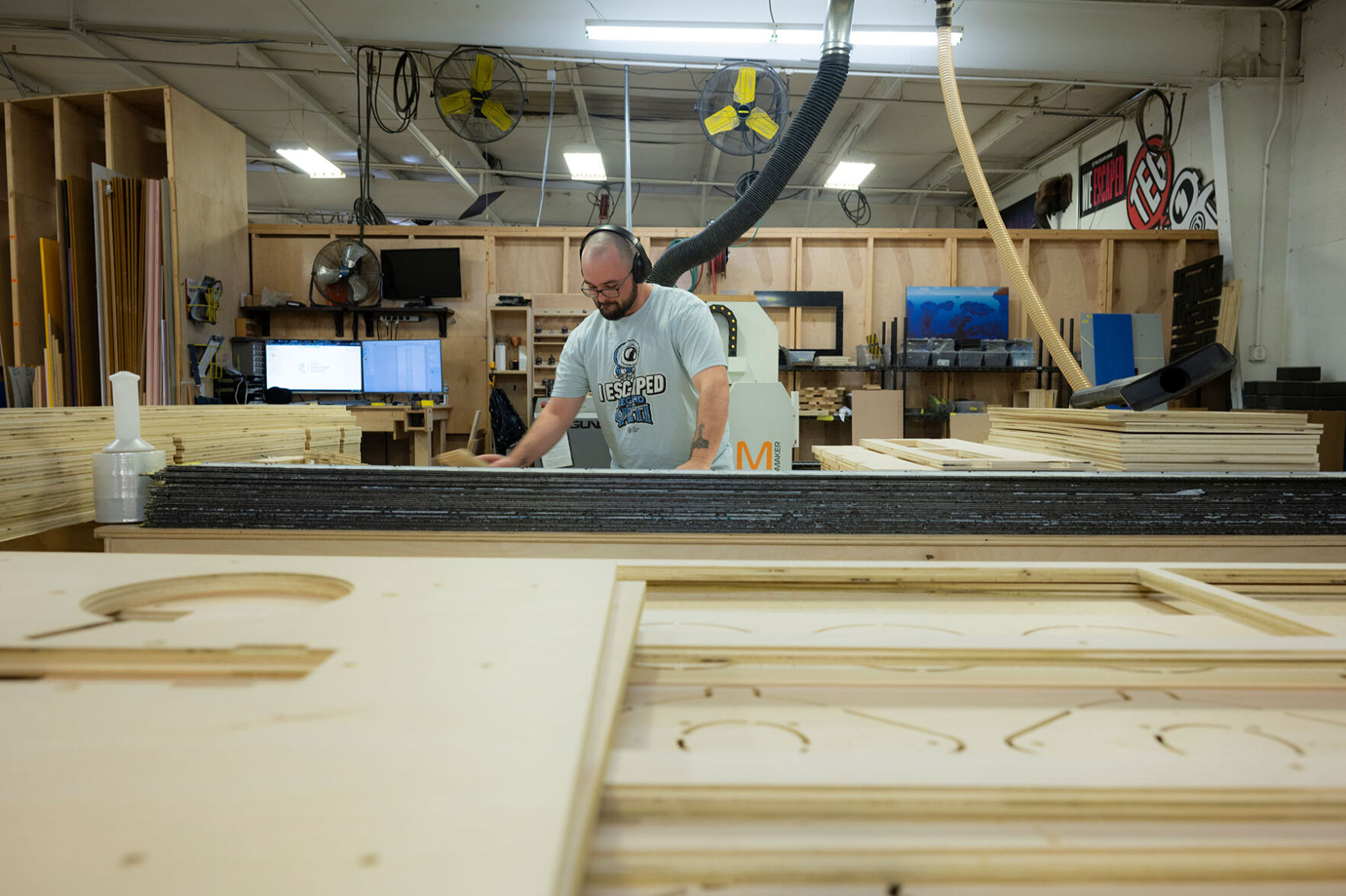
Founded in 2014 by Mark Flint and brothers Jonathan and James Murrell, The Escape Game has outposts in dozens of major U.S. metro areas. By the end of this year, they expect to be running 70 brick-and-mortar locations. There are currently three Escape Game-branded escape rooms in Nashville, including in Berry Hill (the company’s first-ever location) and The Great Big Game Show — the organization’s latest venture — at Opry Mills.
What began as a small production house in Berry Hill grew into a 2,000-square-foot facility in One Hundred Oaks, then a 15,000-square-foot venture in Wedgewood-Houston and a stop in Melrose before settling (for now) at The Adventure Factory in Rutherford County. The major expansion was needed after an explosion in the popularity of escape games during the COVID-19 lockdown — which may seem like an odd time for a company selling in-person, heavily interactive experiences in small rooms to see a rise in success.
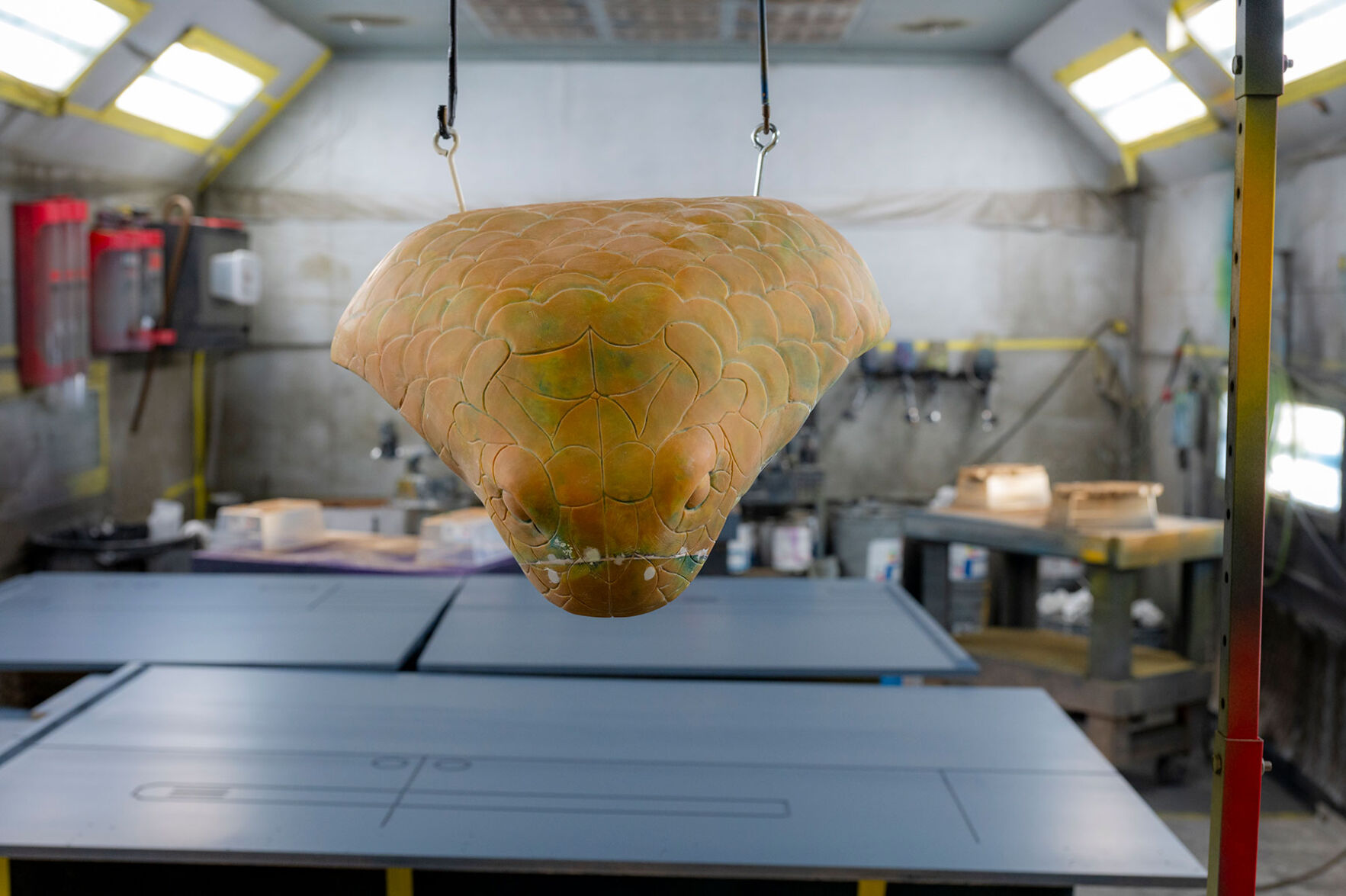
“I’d say it was kind of our finest hour, getting through that,” says senior director of marketing Teddy Cheek. “Our business model shouldn’t work during COVID. We put people in a room — sometimes they’re strangers, and you have to touch everything.”
But thanks to some innovative thinking — which included the making of face shields to keep the production facility in business and virtual escape rooms to help the storefronts stay running — The Escape Game thrived.
“It was just the right product at the right time,” Cheek says. “I’ve never been a part of something quite like that product-market fit. … Heading into the holidays, where people needed team-building, we were doing thousands of [virtual] players a day.”
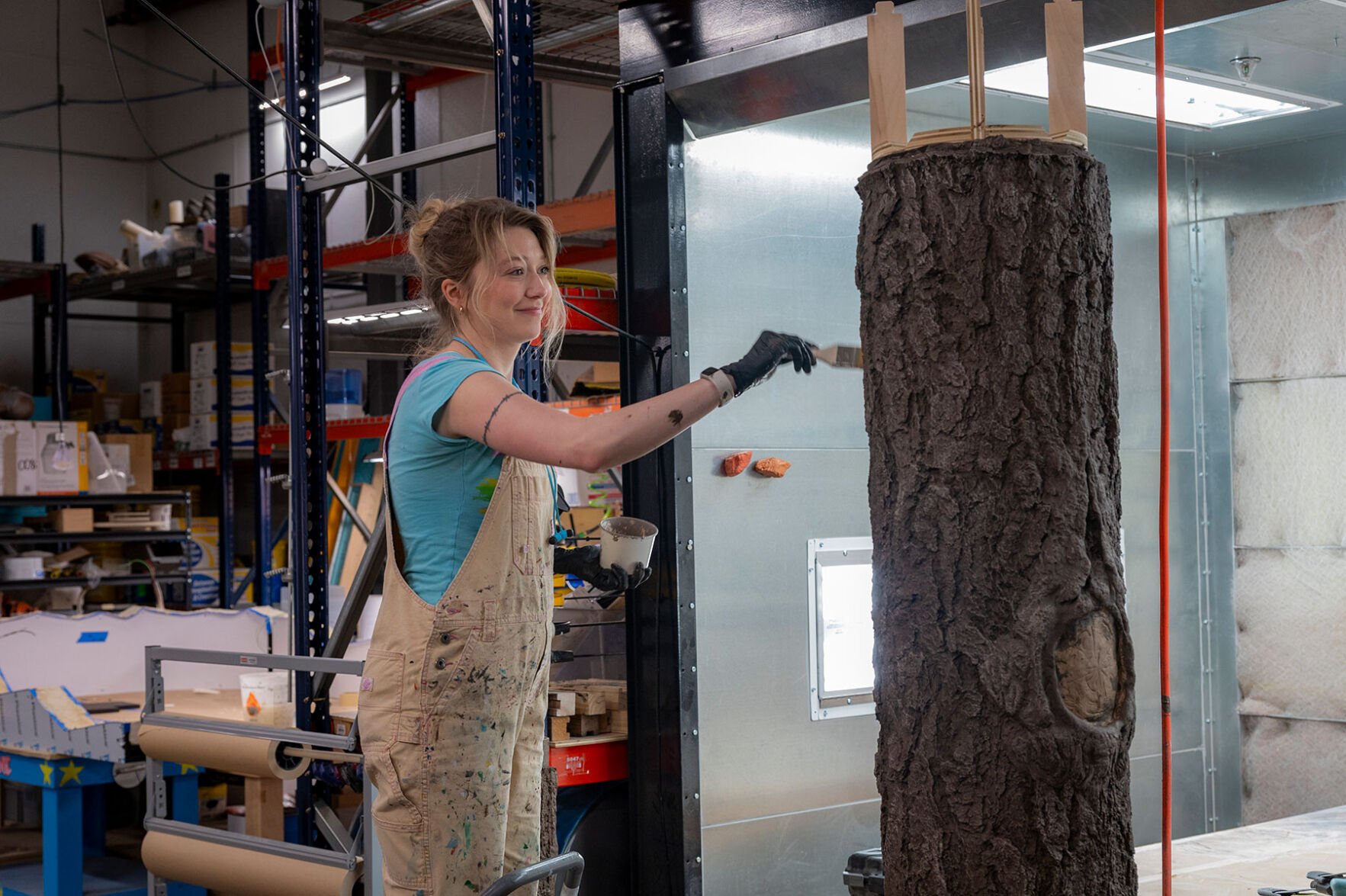
Once in-person activities resumed, The Escape Game had a head start over its competition. The company soon became one of the most popular escape room brands in the country at a time when people were craving in-person interaction.
Hearing all these figures might make you think of shareholders in a pristine, sanitized corporate setting. But that’s not what you’ll find at The Adventure Factory. Everyone I talked to, from game designers to carpenters, painters and set decorators, described an artist-first environment.
“It’s whatever serves the experience,” says Ben Enos, senior director of product design. “We’re building whatever makes a great experience. So if it requires these guys to figure out how to do something really new and innovative, great. We’ll do that. But we’re not doing that just to check a box and be cool.
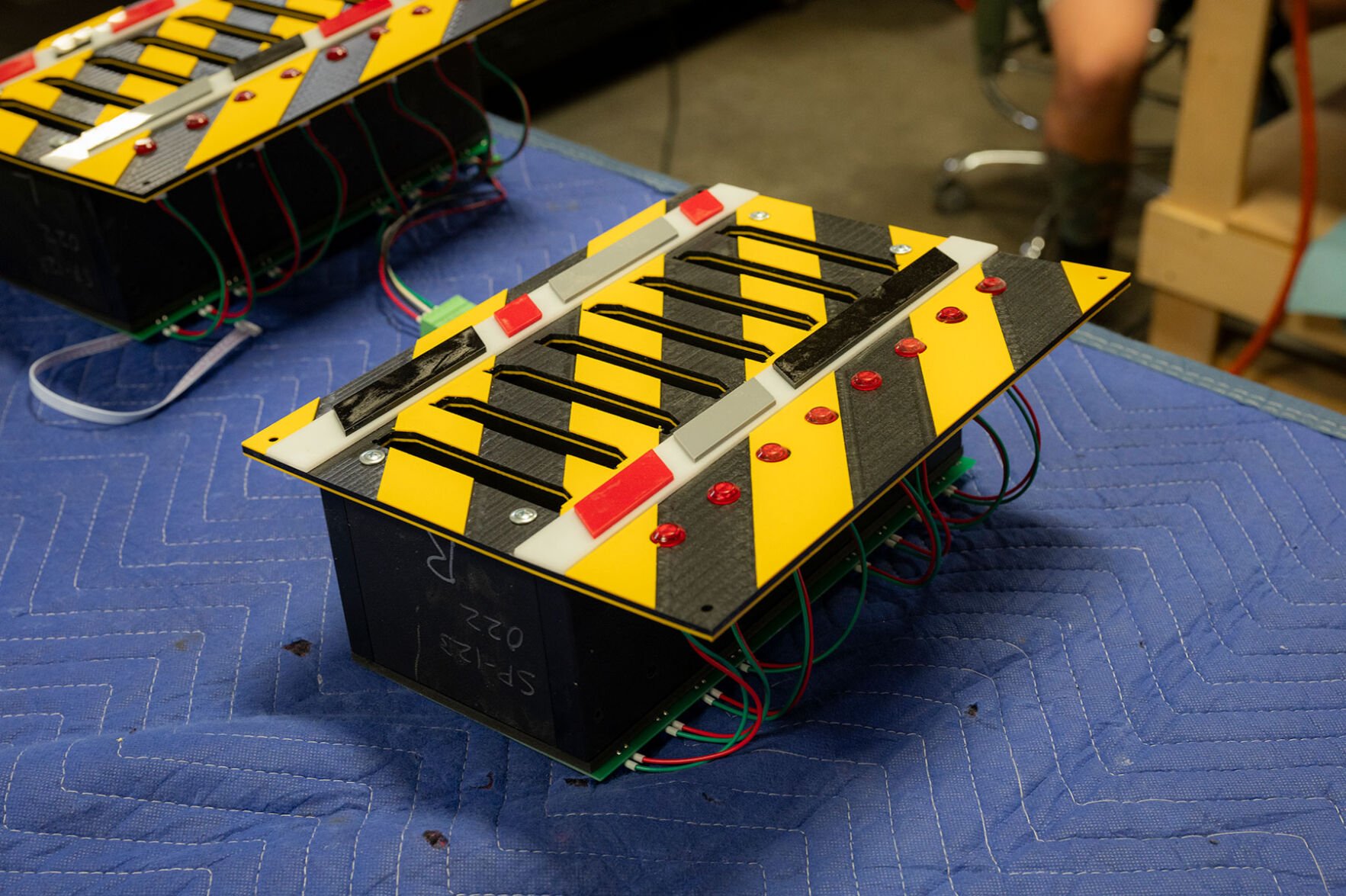
“One example is the buttons for [the escape room] Cosmic Crisis,” he continues. “We could have used any little button, and it would have been fine. But because we’re in this futuristic spaceship, we want you to be able to have these more tactile, engaging experiences, so we had to custom-make these buttons.”
Nailing the texture of anything a visitor can push, pull or turn is weirdly integral to an escape room setting. The customer is more grounded in the universe of the game if it “feels real.” Designers also have to take into account a tendency for some customers to be a bit overzealous when it comes to completing the task in front of them.
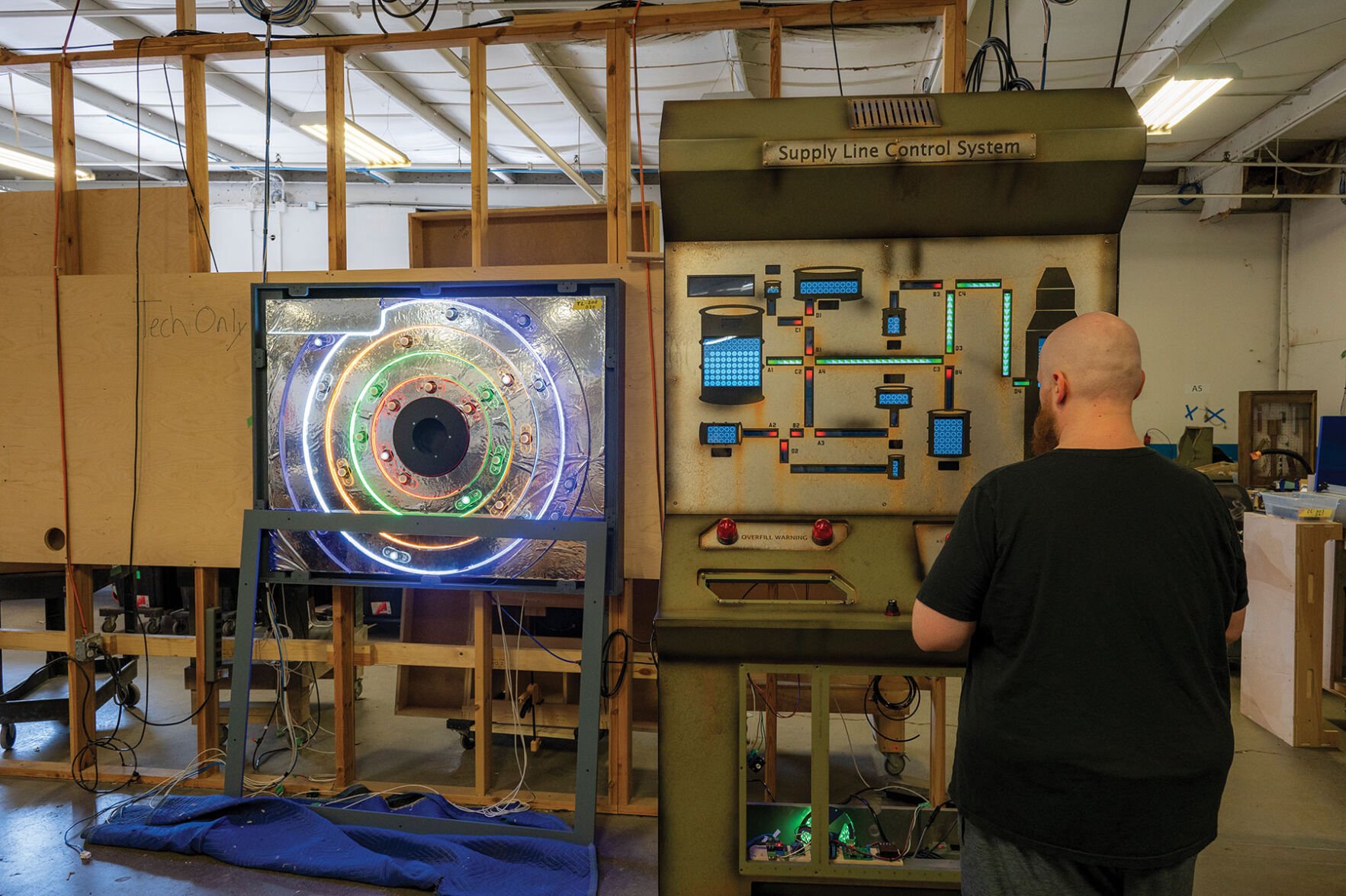
“We have a lot of overthinking,” Enos says. “It’s funny because we see literal rocket scientists come play our games, and they tend to be the ones that overthink it because they’re making these [extra] connections.
“Most of our competitors are like, ‘You get three clues, and that’s it,’” he continues. “It’s about being trapped and it being extraordinarily difficult. For us, it’s about it being fun. Yes, there’s a challenge, but you can ask for unlimited hints. There’s no judgment or penalties for asking for clues.”
Whether you want to live out your childhood dreams of being on Legends of the Hidden Temple, attempt a bank robbery without the risk of arrest, or play-act as Hercule Poirot — or you just love solving a good puzzle —The Escape Game offers a chance to be the hero of your own movie for an evening. And without The Adventure Factory, those immersive adventures wouldn’t be nearly as convincing.

